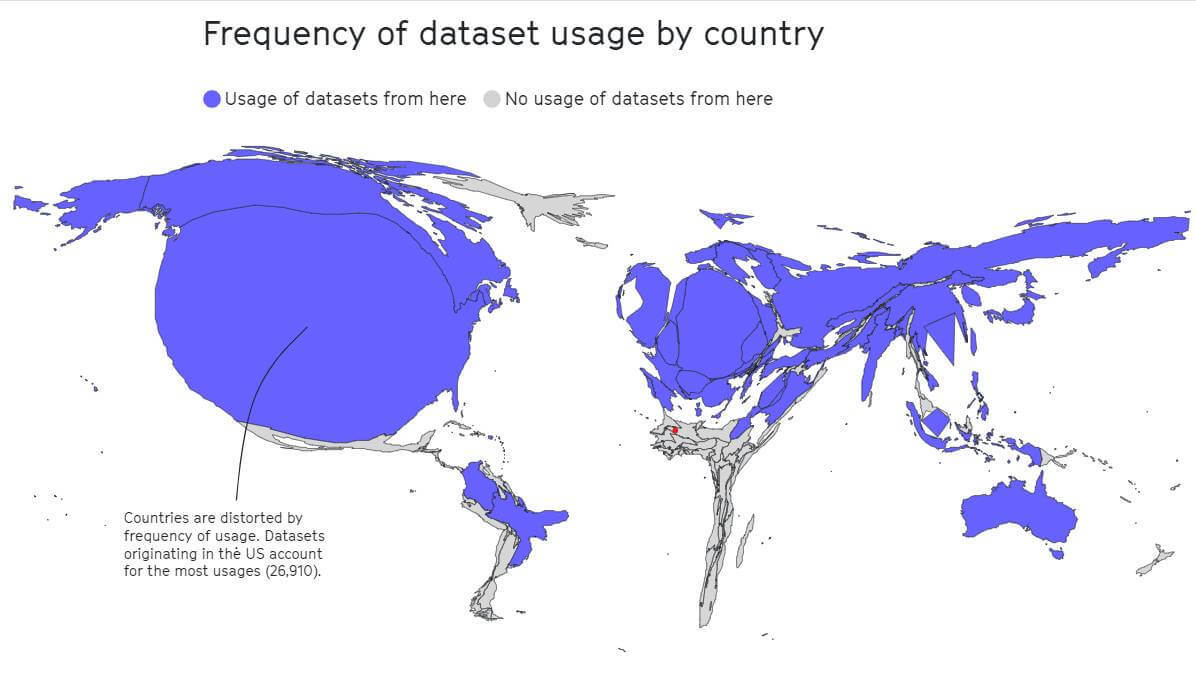The potential of AI in African agriculture, energy and climate protection – GSMA

A new report from the GSMA highlights the enormous potential of artificial intelligence (AI) in supporting Africa’s socio-economic growth, particularly in sectors such as agriculture, energy and climate change.
The report, titled “AI for Africa: Impactful Use Cases,” identified over 90 AI use cases in Kenya, Nigeria and South Africa, 49% of which are related to agriculture, 26% to climate change and 24% to the energy sector.
“While many use cases for AI are still relatively new and some are being deployed as part of projects or pilots, a number of commercially viable solutions have also emerged,” the report says. “Often, AI is integrated into existing digital products and services and serves as an enabler to make digital solutions more relevant and efficient, increase their impact and facilitate scaling,” it continues.
The GSMA report also drew on existing research and interviews with leaders from civil society, non-governmental organisations (NGOs), academia and the private sector.

Africa represents only 2.5% of the global AI market, but according to data from AI4D Africa, new applications could boost the continent’s economic growth by $2.9 trillion by 2030.
“To realize the transformative potential of AI across Africa, there needs to be a strong focus on improving the skills of both AI developers and AI users, especially among underserved populations. Better training programs are essential, especially given the global brain drain of AI talent,” said Max Cuvellier Giacomelli, Head of Mobile for Development at the GSMA, in a statement on the report.
The study found that the increasing availability of data generated by remote sensing technologies such as ground sensors, drones with high-resolution cameras and satellites has led to the development of many AI-driven use cases across all sectors.
Machine learning (ML)-based analysis of geospatial and remote sensing data can support a wide range of use cases and activities, such as monitoring soil conditions for effective crop management, mapping energy access in off-grid areas to support energy planning, and monitoring the impacts of climate change on ecosystems.
AI use cases dominate in agriculture
The GSMA found that the agritech sector is seeing the most AI innovation, particularly in Kenya and Nigeria, where agriculture continues to play a significant role in the economy.
Agriculture employs 52 percent of Africa’s workforce and contributes an average of 17 percent to GDP. In sub-Saharan Africa, up to 80 percent of food is produced by smallholder farmers, who often use traditional techniques and lack access to information that would help them improve yields.
AI is already being used in agricultural consulting – companies like TomorrowNow and ThriveAgric are providing farmers with farm-level insights – and in financial services – companies like Apollo Agriculture are developing alternative methods for credit scoring.
The GSMA found that most AI use cases in agriculture rely on ML-powered digital advisory services that provide data-driven advice to farmers to help them implement climate-smart agricultural practices and optimise their productivity.
These solutions typically reach farmers via mobile devices, highlighting the importance of device ownership, digital skills and knowledge, and ease of use.
Impact of AI on energy services
Africa faces major challenges in terms of energy access and reliability, with half of its population lacking access to electricity.
AI is being used in the energy sector, particularly in Nigeria, where new technologies such as the Internet of Things (IoT) serve as an entry point for advanced data analytics in smart energy management.
“Use cases such as energy access monitoring and productive asset financing, developed by companies like Nithio, are still in development or early stages but hold significant potential to reduce energy poverty,” the report’s authors said.
Today, AI-powered solutions in Africa are improving both grid-connected infrastructure and off-grid systems, with use cases including predictive maintenance, smart energy management, energy access assessment, and financing productive use.
The GSMA stressed that improving energy access and efficiency in the region is critical as it will create a virtuous circle by improving the use of the internet and digital tools, mobile networks and broadband, and the generation, transmission and distribution of data required for AI capabilities.
AI supports climate protection
Although Africa is home to almost a fifth of the world’s population, it currently accounts for only four percent of global energy-related carbon dioxide (CO2) emissions, and according to the GSMA study, the continent has the lowest emissions per capita of any region.
But the negative impacts of climate change are already being felt disproportionately by people in Africa. These include water shortages, reduced food production, an increase in extreme weather events and lower economic growth. All of these factors contribute to instability in the region.
Forecasts suggest that climate change could reduce Africa’s GDP by eight percent by 2050. In regions such as East Africa, losses would be around 15 percent.
“AI is supporting climate use cases, particularly in biodiversity monitoring and wildlife conservation in Kenya and South Africa, driven by major technology companies like Microsoft’s AI for Good Lab and nonprofits like Rainforest Connection,” the report said.
“The vast majority (98%) of AI use cases in Africa fall under predictive AI applications leveraging ML approaches due to the availability of historical datasets, ease of use and lower computational effort compared to generative AI models,” the GSMA said.
The data deficit
One of the key challenges outlined in the report is the lack of locally relevant data for Africa, which the GSMA says is “a major barrier to developing and deploying tailored solutions” that address challenges unique to the continent.
In addition to the hurdles in accessing government and domain-specific data, one of the biggest gaps is language data. The lack of data in local languages limits the relevance of AI-powered services and poses a significant obstacle to the development of generative AI solutions based on language models.
“To effectively train AI models, large-scale, diverse and representative data is essential. It is critical that datasets reflect the complexity and nuances of African markets and do not mimic data from the global north,” the group said.

(Source: Mozilla Foundation).
To fully exploit the potential of AI, the GSMA believes that key hurdles must be overcome, including the limited number of African data centers and expensive technology investments.
It suggested that countries can use mobile-first markets to develop distributed or hyperlocal edge computing – where tasks are performed on devices such as phones and laptops – and thus reduce reliance on powerful data centers.
“After basic models are trained on large datasets, AI models can be ported to smartphones for fine-tuning. With smartphone penetration at 51% and expected to increase to 88% by 2030, mobile edge computing will play a central role in expanding the adoption and capabilities of AI in Africa,” the GSMA said.
“To ensure Africa does not get left behind, strong partnerships are needed across a broad ecosystem of partners, including Big Tech, NGOs, governments and mobile operators. Policies must also evolve to address inequality, ethics and human rights concerns in the use of AI,” added Cuvellier Giacomelli.
“As African countries develop their own AI strategies, active participation in global forums will be critical to define regulatory frameworks that promote ethical AI development and protect societal interests to work towards sustainable solutions that benefit all African communities,” he concluded.
Related Posts:
*Source of the above image: Image from freepik – AI generated.
— Paula Gilbert, Editor, Connecting Africa



